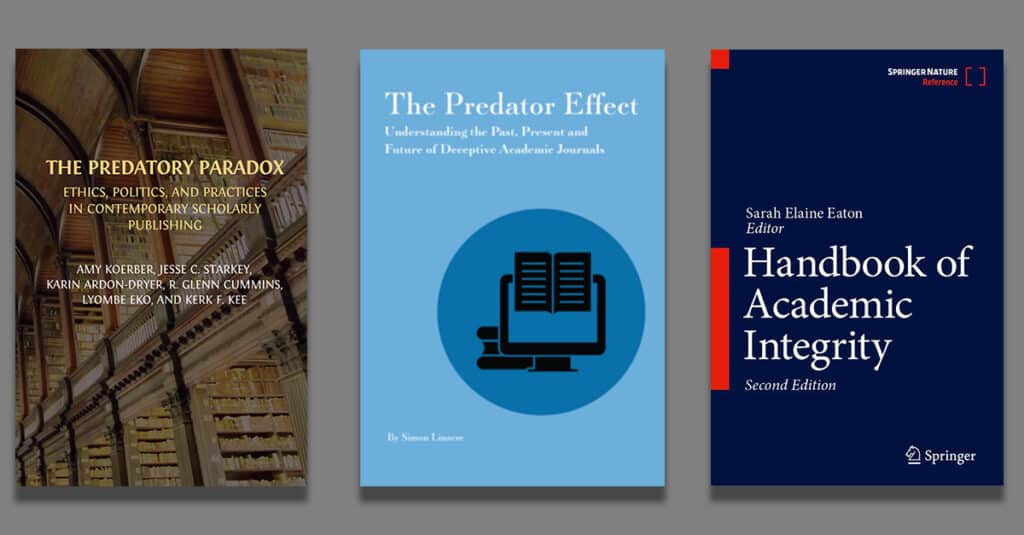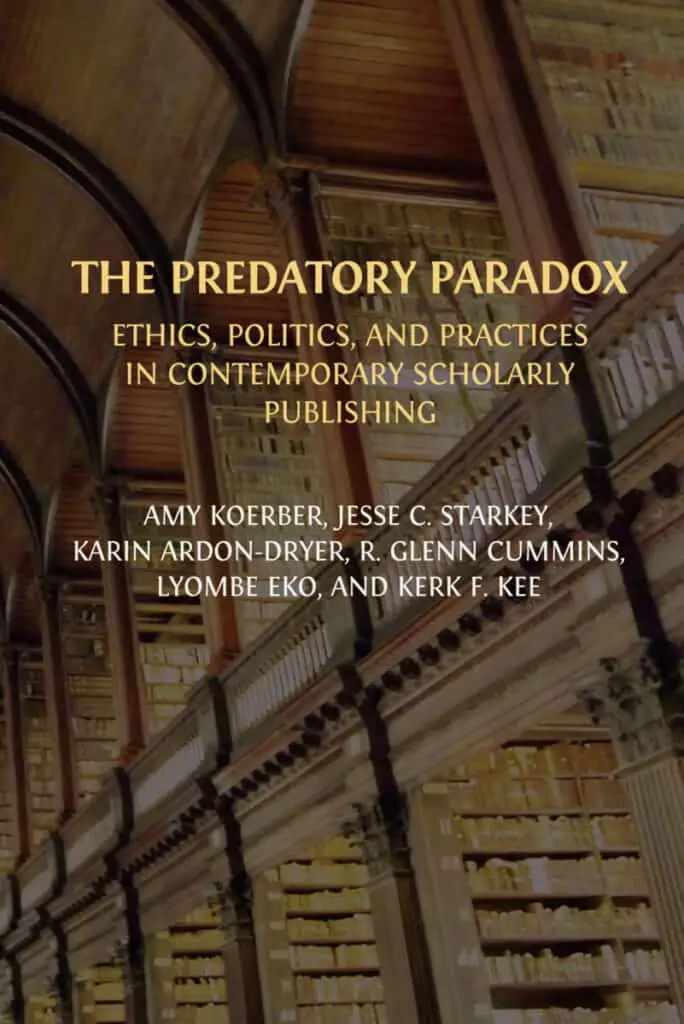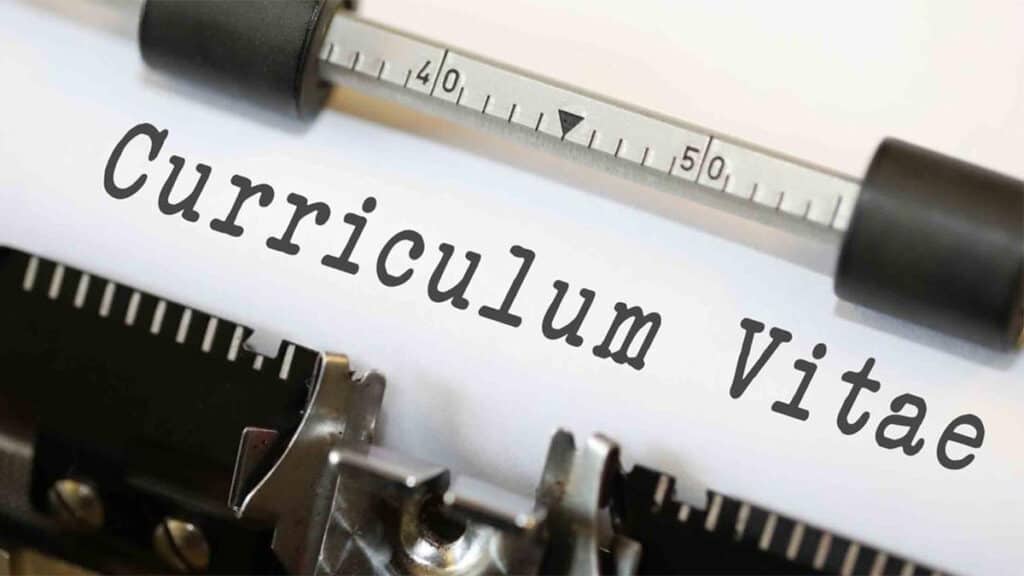Recently we have seen three books (about to be) published on predatory publishing and/or research integrity. This shows the growing interest and awareness of this topic. Here are a few more details about the books featured in the image.
The Predatory Paradox
Blurb from the book
“In today’s ‘publish or perish’ academic setting, the institutional prizing of quantity over quality has given rise to and perpetuated the dilemma of predatory publishing. Upon a close examination, however, the definition of ‘predatory’ itself becomes slippery, evading neat boxes or lists which might seek to easily define and guard against it. This volume serves to foreground a nuanced representation of this multifaceted issue. In such a rapidly evolving landscape, this book becomes a field guide to its historical, political, and economic aspects, presenting thoughtful interviews, legal analysis and original research. Case studies from both European-American and non-European-American stakeholders emphasize the worldwide nature of the challenge faced by researchers of all levels.
This coauthored book is structured into both textual and supplemental materials. Key takeaways, discussion questions, and complete classroom activities accompanying each chapter provide opportunities for engagement and real-world applications of these concepts.
Crucially relevant to early career researchers and the senior faculty, library scholars, and administrators who mentor and support them, ‘The Predatory Paradox: Ethics, Politics, and Practices in Contemporary Scholarly Publishing’ offers practical recommendations for navigating the complex and often contradictory advice currently available. University instructors and teaching faculty will also find the reading essential in order to properly prepare both graduate and undergraduate students for the potential pitfalls endemic to scholarly publishing.“
Alternatively, or go directly to the book.
The Predator Effect
Preface from the book
“In April 2016, I was invited by Cabells to sit on a panel at the Association to Advance Collegiate Schools of Business (AACSB) annual conference in Boston, USA. I was asked to contribute to a discussion on the threats posed by predatory journals to academic research and publications. At the time, I was well aware of the problems such journals caused, having dealt with their fallout in various roles over the years at Emerald Publishing. There was standing room only in the small venue allotted for the discussion, mainly due to the star-studded panel—not me of course, but for scholarly communications heavy hitters such as Rick Anderson and Jeffrey Beall.
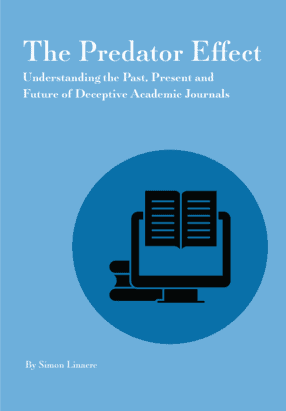
It was my first taste of what was to become an interest, verging on obsession, fueled by a new role at Cabells from 2018 and fascination with the many twists and turns exhibited by predatory publishing behavior. Much of what I came across with predatory journals was hard to understand at first, and I had 15 years of academic publishing experience behind me. Small wonder then that many academics, funders, and higher education professionals found predatory publishing unfathomable. In that case, was there anything that could be done to support them?
Hopefully, this short book will go some way to explaining what predatory journals are, how they were first conceived, and how they have grown to become such an unwelcome part in the fabric of academic publishing. Their history involves many of the key elements of modern scholarly communications—Open Access (OA), citation analysis, publication ethics—but also includes some of the more unsavory aspects of the industry. Ultimately, the book ends with the aspiration that the predatory phenomenon can be dealt with positively. It is hoped the more people read this book and understand how predatory journals operate, the more the brief success they have enjoyed so far this century will be short-lived.“
We have tweeted about this book, which you can see here.
Or go directly to the book.
The book is open access, so you can download a PDF for free or you can buy a paperback copy.
Handbook of Academic Integrity
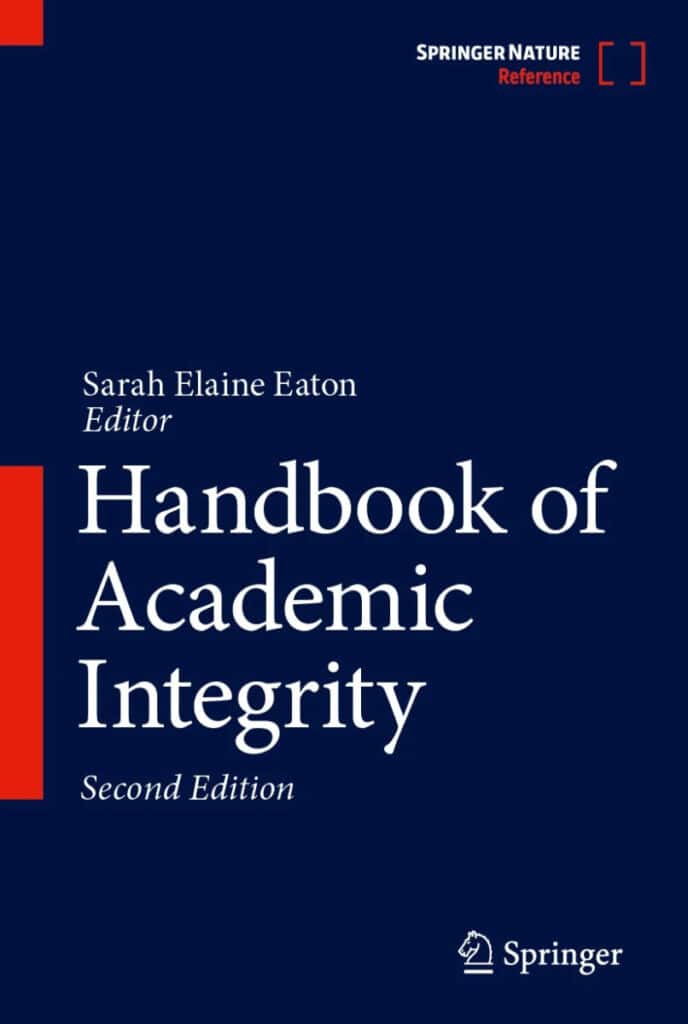
From “About this Book”
“The book brings together diverse views from around the world and provides a comprehensive overview of the subject, beginning with different definitions of academic integrity through how to create the ethical academy. At the same time, the Handbook does not shy away from some of the vigorous debates in the field such as the causes of academic integrity breaches. There has been an explosion of interest in academic integrity in the last 10-20 years. New technologies that have made it easier than ever for students to ‘cut and paste’, coupled with global media scandals of high profile researchers behaving badly, have resulted in the perception that plagiarism is ‘on the rise’. This, in combination with the massification and commercialisation of higher education, has resulted in a burgeoning interest in the importance of academic integrity, how to safeguard it and how to address breaches appropriately.
What may have seemed like a relatively easy topic to address – students copying sources without attribution – has in fact, turned out to be a very complex, interdisciplinary field of research requiring contributions from linguists, psychologists, social scientists, anthropologists, teaching and learning specialists, mathematicians, accountants, medical doctors, lawyers and philosophers, to name just a few. Despite or perhaps because of this broad interest and input, there has been no single authoritative reference work which brings together the vast, growing, interdisciplinary and at times contradictory body of literature. For both established researchers/practitioners and those new to the field, this Handbook provides a one-stop-shop as well as a launching pad for new explorations and discussions.“
We have tweeted about this book.
The book is not published yet, but you can see the book’s home page.
Do you know of any other books?
Please let us know if you know of any more books (not papers) on predatory publishing or research integrity as we’d like to add them to our list.
If we can get hold of the book we’ll do a review, which we hope to do for the books mentioned in this article.
